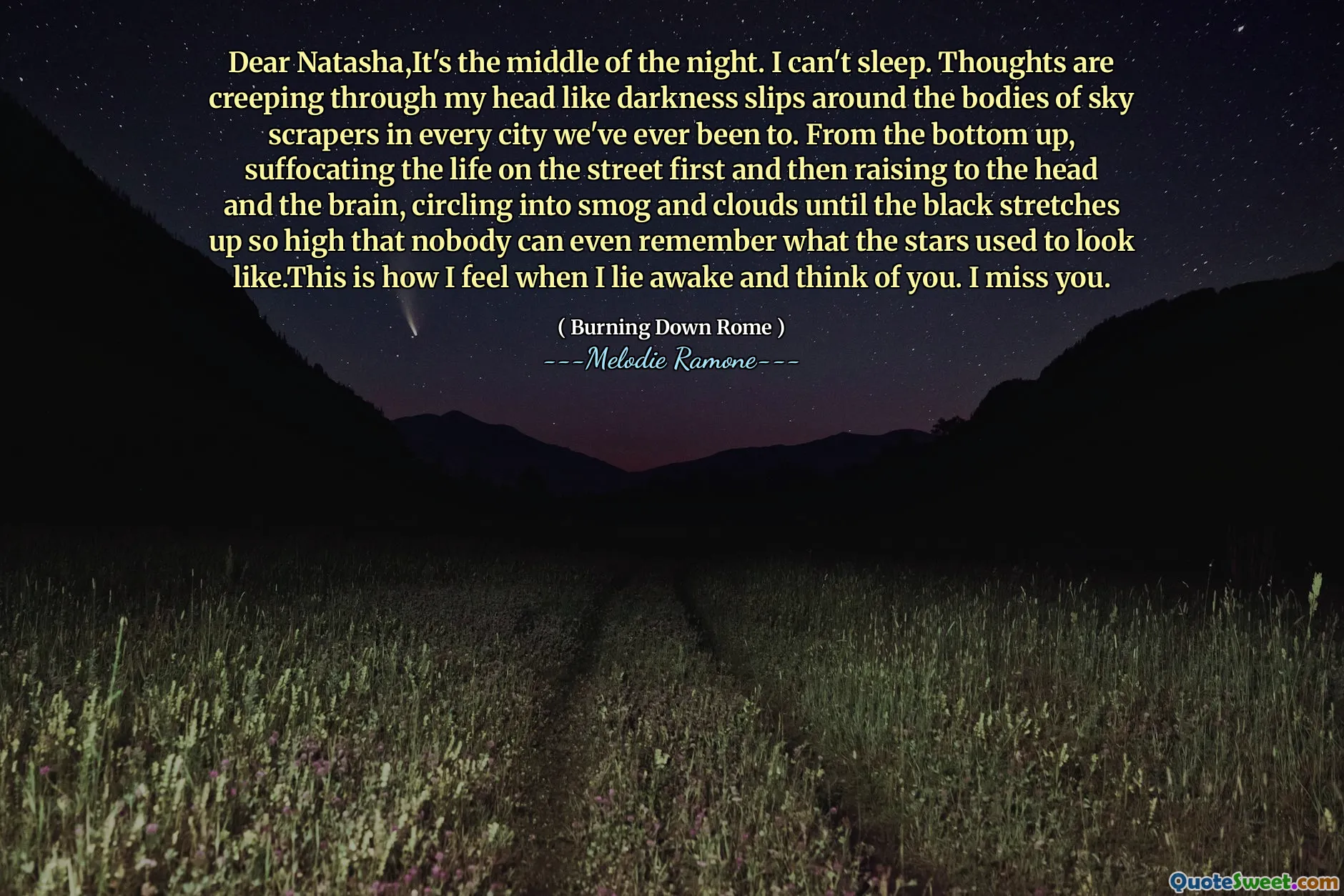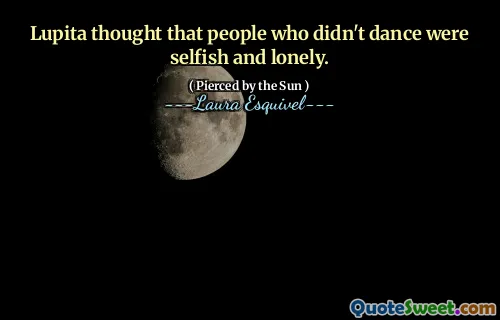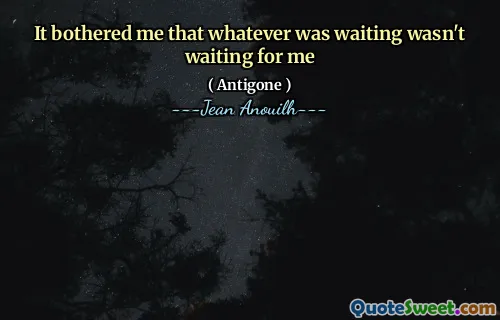
Dear Natasha,It's the middle of the night. I can't sleep. Thoughts are creeping through my head like darkness slips around the bodies of sky scrapers in every city we've ever been to. From the bottom up, suffocating the life on the street first and then raising to the head and the brain, circling into smog and clouds until the black stretches up so high that nobody can even remember what the stars used to look like.This is how I feel when I lie awake and think of you. I miss you.
The quote profoundly captures the experience of insomnia fueled by emotional turmoil, specifically the aching longing for a loved one. The imagery likening creeping thoughts to darkness winding around skyscrapers is striking; it evokes an overwhelming sense of suffocation and despair, suggesting that the thoughts aren't merely passive but actively invading the mind's space, suffocating it much like the way smog and pollution erase the clear night sky. This metaphor artfully connects personal feelings to universal and tangible experiences — the blackened skies over cities we all know give the pain a physical dimension. There is a certain vulnerability inherent in the nighttime: it is when the world quiets and distractions fade that our deepest feelings rise to the surface. The author’s reference to cities they have been to imbues the message with a shared history and intimacy, signaling that the separation feels heavier when recalling those shared moments and places. What I find particularly poignant is how the darkness growing upwards signifies thoughts escalating from mere surface-level distraction to invading the mind's higher functions, disrupting peace and memory. The lament almost feels timeless — a human condition of missing someone so intensely that it becomes impossible to rest. This blend of urban imagery and personal emotion lends a cinematic quality to the quote, making it a relatable and vivid expression of yearning and sleepless nights. From the rich metaphors to the tender closing line, the fragment offers a deep dive into loneliness, memory, and emotional turbulence.






